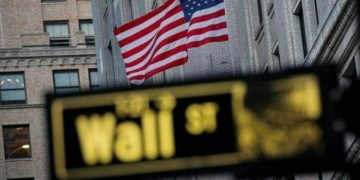ABU DHABI (Reuters) – The United States will grant no more waivers for Iranian oil after the reimposition of U.S. sanctions, the U.S. special representative for Iran said on Saturday, underlining Washington’s push to choke off Tehran’s sources of income.
“Iran is now increasingly feeling the economic isolation that our sanctions are imposing…We do want to deny the regime revenues,” Brian Hook told a news conference in the United Arab Emirates capital Abu Dhabi.
“Eighty percent of Iran’s revenues come from oil exports and this is (the) number one state sponsor of terrorism..We want to deny this regime the money it needs,” Hook said.
Tensions between Iran and the United States have increased since May, when U.S. President Donald Trump abandoned a 2015 nuclear deal between Tehran and major powers, saying the accord was flawed in Tehran’s favor, and reintroduced sanctions on Iran that had been lifted under the pact.
“We want a new and better deal (with Iran) but in that process we are denying the Iranian regime billions and billions of dollars and they are facing a liquidity crisis,” Hook said.
The Islamic Republic, he added, would not return to the negotiation table without pressure.
Tehran has refused to renegotiate its nuclear accord and says its ballistic missile program – another source of concern for Washington and its regional allies such as Israel and Saudi Arabia – is solely defensive and untouchable.
Hook said Washington was pleased with China cutting its oil imports from Iran, and that he expected much deeper reductions in Iranian oil exports. “We are just getting started,” he said.
Iran’s crude exports will be severely curtailed for a third month in January as it struggles to find new buyers amid U.S. sanctions even though its traditional customers secured temporary waivers, according to tanker data and industry sources.
Separately, Omani Oil Minister Mohammed bin Hamad al-Rumhi told the news conference that Washington had not asked the Gulf Arab state to stop a gas pipeline project with Iran and that talks were continuing.
He said some partners for the project had pulled out because of the risk of punishment by Washington for dealing with Iran but that some other Asian firms were willing to take part.
Hook declined to say what the administration in Washington would do when the current Iran waivers end in May.
Washington granted waivers to eight major buyers of Iranian oil – including China, India, Japan and South Korea – after restoring energy sanctions in November.
Fusion Media or anyone involved with Fusion Media will not accept any liability for loss or damage as a result of reliance on the information including data, quotes, charts and buy/sell signals contained within this website. Please be fully informed regarding the risks and costs associated with trading the financial markets, it is one of the riskiest investment forms possible.
Source: Investing.com



























